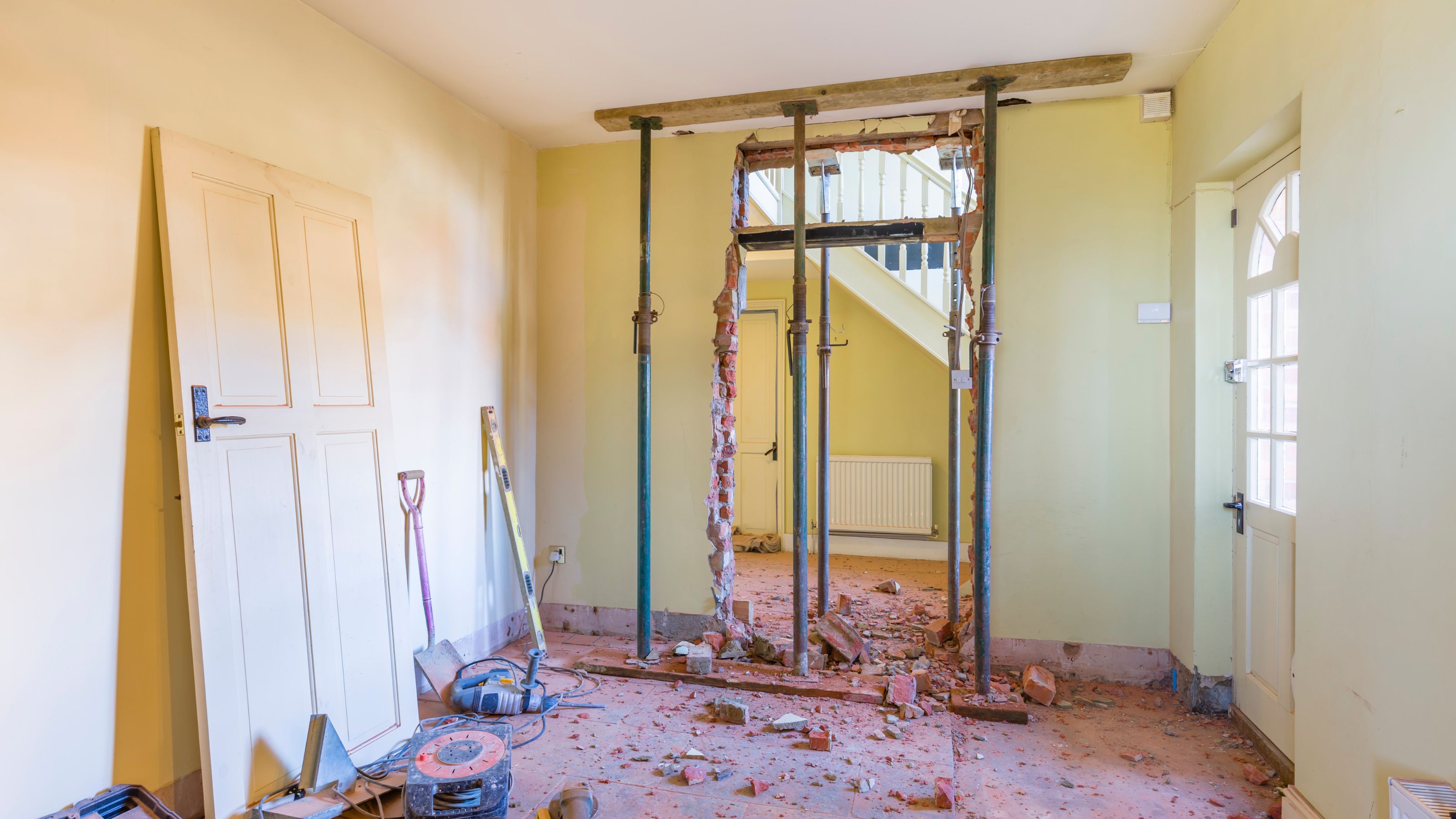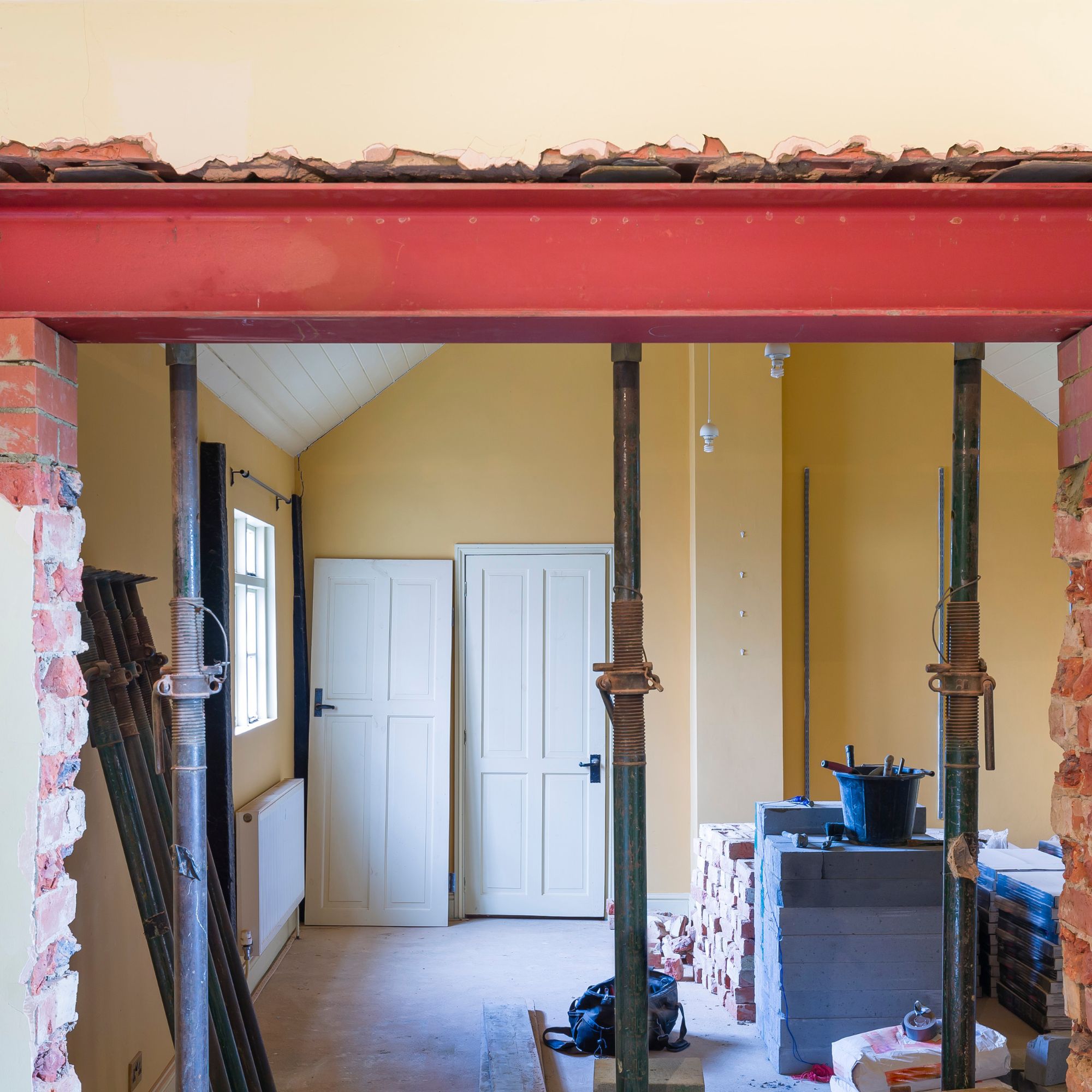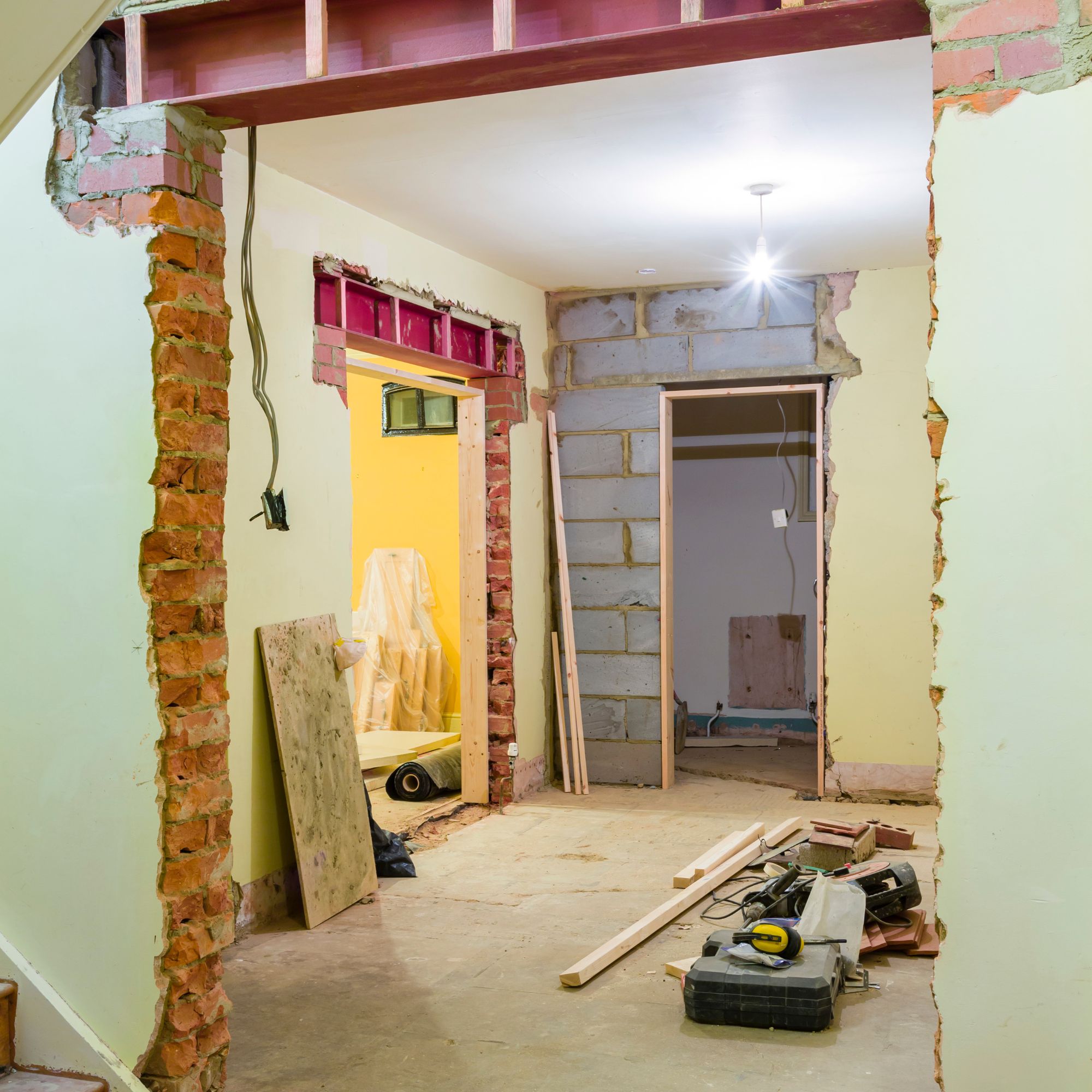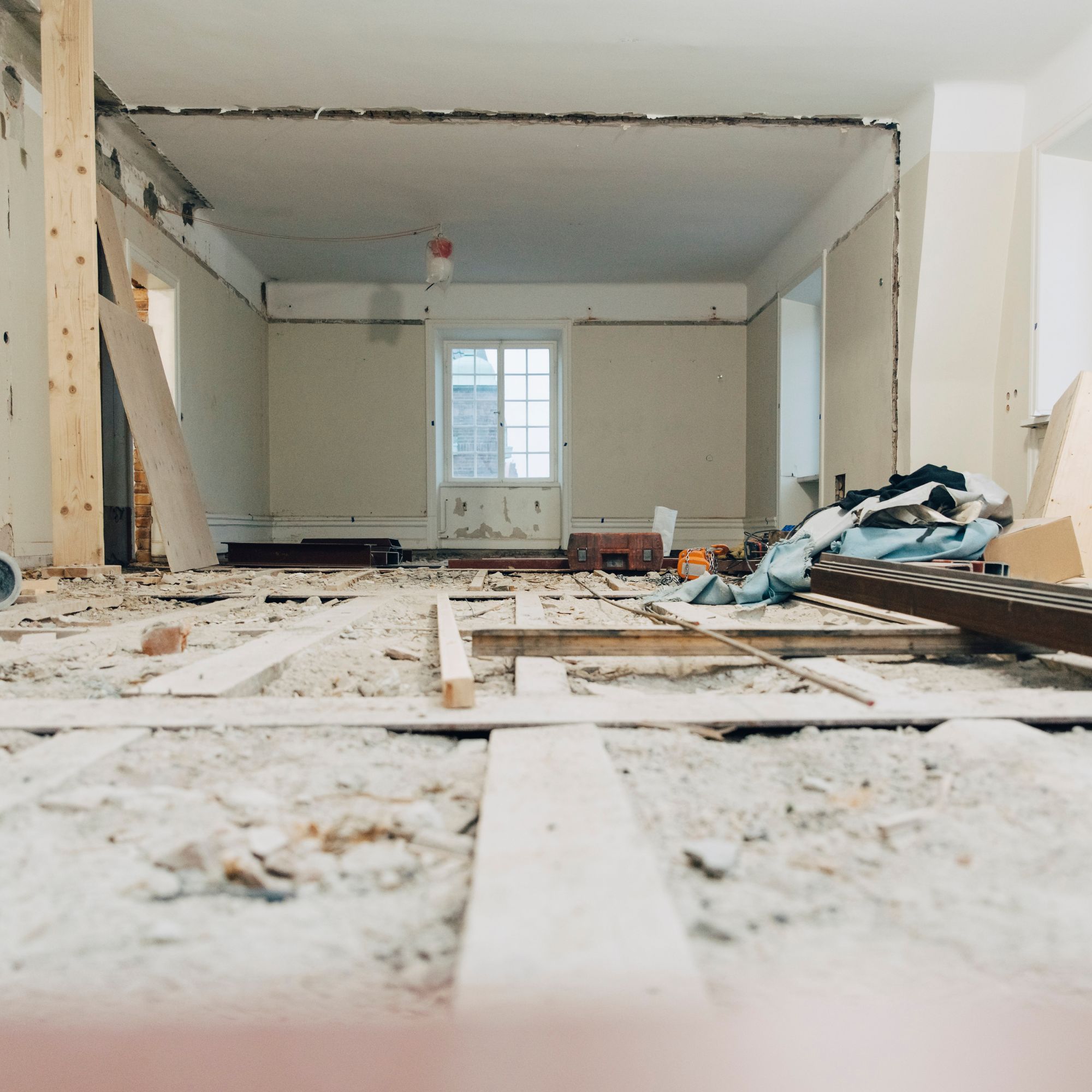Forgetting to do this one thing before removing a wall could have dire consequences, say experts
It can be tempting to skip it, but experts warn against it


If you're about to embark on a significant home improvement project, you'll know that there is plenty to tick off the list before you even pick up a tool to start the work.
And a project like removing an internal wall is no exception. Depending on the scope of your plans and the property you live in, you might already be aware that you need to submit a Building Notice or even a planning application before you begin.
But for many homeowners, informing your home insurer of the work is often overlooked, which could have dire consequences should something go wrong. I spoke to multiple home insurance experts about what a homeowner should do and what the potential repercussions could be of ignoring this crucial step in the process.
What are the consequences of not informing your home insurer of your plans to knock down walls?

There can be very serious consequences if you don't inform your insurer about your wall removal plans, especially if something goes wrong.
‘Most home insurance policies require homeowners to disclose any significant structural changes, including knocking down internal walls, before any renovation work begins,' says Matt Durrant, Insurance Expert and Managing Director of i4me. 'Failing to do so could result in your policy being voided entirely, which means you’re not covered for any claims, even if they are unrelated to the renovation works.'
This could be an especially costly mistake if you don't correctly identify a wall as load bearing before you attempt to remove it. This could lead to significant structural defects, which your insurer may not pay out for.
Nathan Blackler, spokesperson for Go.Compare Home insurance agrees: ‘Making structural changes to your home, like knocking down internal walls, might seem straightforward, but if you don’t tell your home insurance provider, you could risk invalidating your home insurance policy.
Sign up to our newsletter for style inspiration, real homes, project and garden advice and shopping know-how
‘Standard buildings and contents home insurance doesn’t always cover major renovations or structural work, so it’s really important to check what is and isn’t covered in your home insurance policy before you pick up the sledgehammer. Even smaller jobs could raise issues - for example, if you’re doing the work yourself, you might not be covered for accidental damage like hitting a water pipe.'
If you fail to speak to your insurer, you also run the risk of potentially being underinsured when your renovation work is complete. ‘Major works, such as creating new rooms or extensions, can increase the value and therefore increase the rebuild cost,' says Matt. 'If your policy doesn’t reflect this, there could be a shortfall in cover in the event of a major claim or total loss.’
How can you make sure you are properly protected?

To ensure you remain adequately covered by your insurance provider, you will need to contact them with specific details as to what you plan on doing, how much it is likely to cost, and how long the work is expected to take. Ask whether the work is covered by your existing policy.
‘They will confirm if they can cover you while the work is being done, or if you need to seek separate specialist renovation insurance,' explains Emma Myrie, Lead Underwriter at specialist home insurer, Homeprotect. 'They will review your existing policy and make any necessary revisions, helping ensure your home remains adequately covered throughout the project.'
Go.Compare's Nathan continues: 'If your works are relatively minor, your current policy might cover you or you might need to pay a small additional premium to boost your protection. But get in touch with your insurer to make sure you understand exactly what is covered.
'Plans inevitably change along the way during a renovation project, so make sure you keep your insurer informed. It's not worth taking a risk of not being properly insured on your home, which for many is their biggest financial asset.'
What additional insurance might be required?

In some cases, a standard home insurance policy might not provide enough cover in which case you will need specialist renovation insurance.
You might even need additional insurance, as Emma explains: 'You should also consider public liability insurance to protect yourself against potential claims for injury or damage to third parties during the construction.
'If the renovations are significant and require you to vacate the property, you’ll likely need unoccupied home insurance while the house is empty. Once the work is completed, don’t forget to update your policy and increase your sum insured to reflect the improved or expanded home.’
If it's your first time knocking down a wall, then heed the advice of a serial renovator who shared the lessons she learned from doing the same thing.

Sarah Handley is Ideal Home’s Renovation Editor. She joined the team full time in September 2024, following three years of looking after the site's home finance content. As well as all things renovation, Sarah also looks after our Home Energy content, which covers all aspects of heating and insulation as well as tips on how homeowners can reduce their energy usage. She has been a journalist since 2007 and has worked for a range of titles including Homebuilding & Renovating, Real Homes, GoodtoKnow, The Money Edit and more.